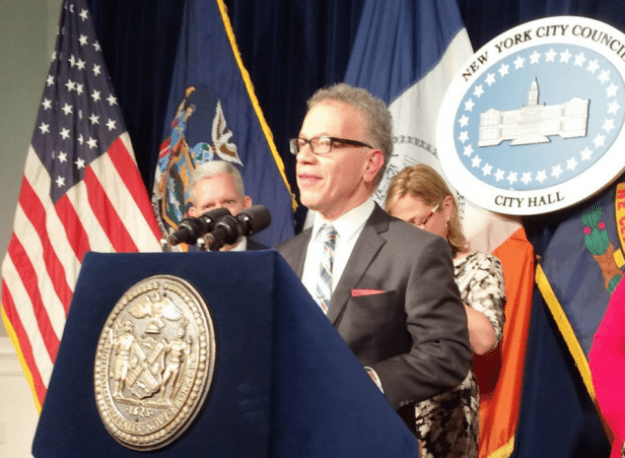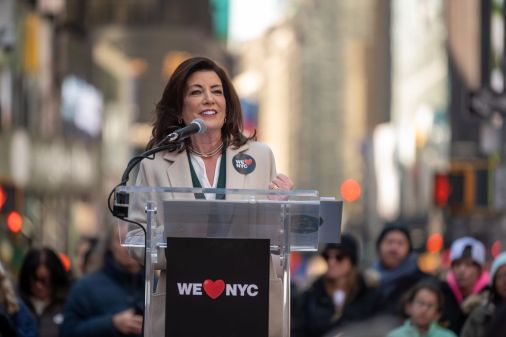New York City strives to add accountability to open data policy

New York City Council members are taking one more crack at improving the city’s open data policy, passing two more bills to improve agency accountability and bolster citizens’ access to the data made available under open records laws.
The council voted to send the bills to Mayor Bill de Blasio’s desk last week, a move that comes on the heels of the mayor agreeing to sign five other open data bills earlier this month. De Blasio has not yet acted on the most recent batch of bills.
One bill, sponsored by Council Member Jimmy Vacca and other members of his Committee on Technology, would require the mayor to pick an agency to conduct several audits of how other agencies are meeting guidelines for posting their data to the city’s portal and lays out nine different agencies that would be audited over the next three years. The other, sponsored by Council Member Annabel Palma and other committee members, stipulates that agencies should review freedom of information law requests to see if the data requested qualifies for posting on the portal.
“Now that we’ve legislated all that we could here basically, we legislated certain safeguards, I think now we can move ahead,” Vacca told StateScoop. “This legislation is not exactly controversial, it’s not exactly sexy, but it’s important and it makes government tick.”
However, even with that caveat, Vacca noted that the recent slate of bills were not included in the original package because “we had to negotiate them a little bit more with the administration,” Vacca said. In fact, the legislators worked with the mayor’s office to heavily revise both bills in the months since their September introductions. But, he added, “I think the end product is really good.”
Vacca’s original bill gave the city’s Department of Investigation the responsibility of conducting the reviews and allowed investigators to choose agencies to audit at random. The legislation that passed the council still requires that the department help develop a plan for carrying out the reviews, but its involvement largely ends there.
A spokesman for the city’s Department of Information Technology and Telecommunications declined to comment on the bills, as the mayor had yet to act on them. However, Albert Webber, the open data program manager for the department, expressed concerns in an October council hearing on the bills about the Department of Investigation getting access to “sensitive, confidential or privileged information in order to determine the existence of public data sets” at the agencies.
[Read more: Boston, New York City craft new open data policies]
But even in its changed form, Vacca said his bill fills a necessary gap in providing a compliance mechanism for the agencies. Vacca said the council has been “patient” in waiting for many agencies to meet deadlines to post data, but many still fail to do so.
Indeed, a review of the open data portal by City Limits — a nonprofit dedicated to investigative journalism in the city — found that 119 of the 177 data sets listed for release under the city’s open data policy were either missing, inadequately updated or incomplete.
“My bill’s going to create an atmosphere where the city’s going to understand that we mean business when it comes to holding the agencies’ feet to the fire,” Vacca said. “The people have a right to know there’s a mechanism to guarantee compliance.”
Vacca is similarly proud of the open records bill, though it also underwent a bit of an evolution.
Palma’s original bill would’ve required that agencies provide the entire data set requested under the freedom of information law to their open data coordinators for review. Now, it stipulates that agencies provide updates about the number of times the data was requested and ultimately released instead.
“I think that many things that people [request] should be on open data to begin with,” Vacca said. “We’re going to have that mechanism also to identify where there are FOIL requests and if they should be posted on open data.”
Overall, Vacca said many of the changes to the bills came down to just “semantics and wording.” With those alterations made, he thinks the mayor will ultimately decide to sign them, though the IT department spokesman suggested that the mayor likely won’t make a decision on the bills until the new year.
“I think the intent on both the legislative and executive side is the same,” Vacca said. “We were both committed to transparency, and this will lend us a new layer of transparency through open data.”






